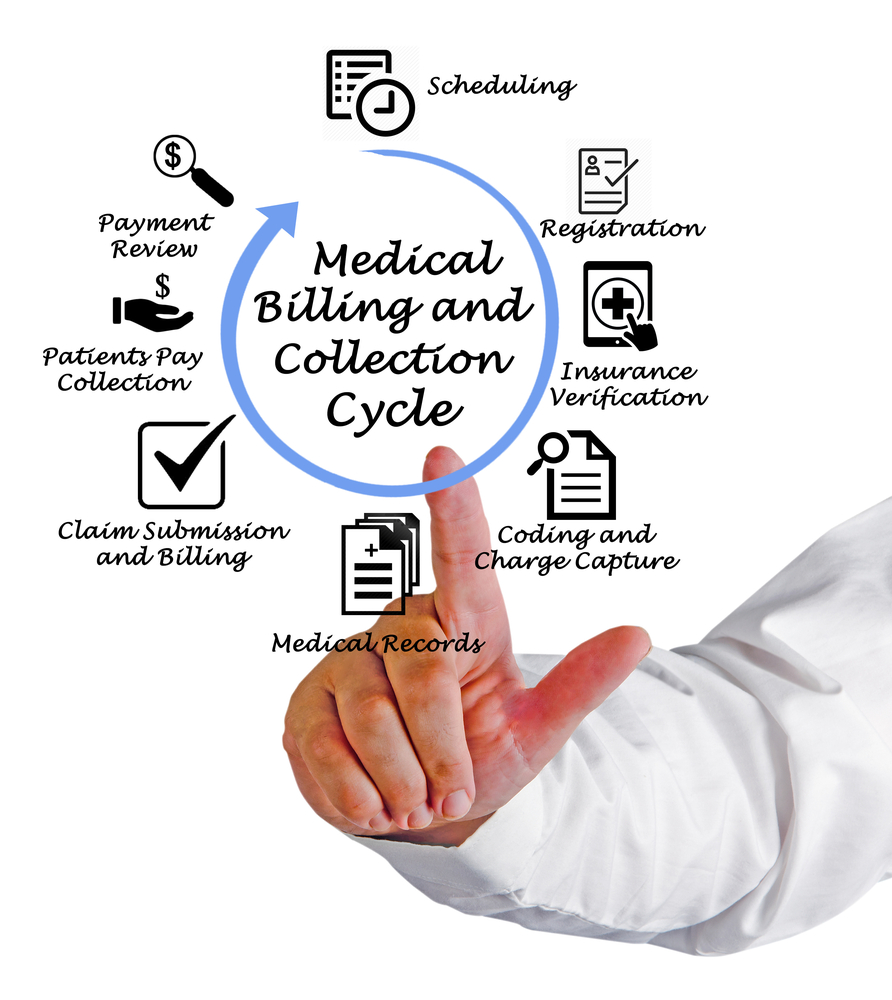Pre-Bill Review of Docs and Coding Increase ROI 700-1000%
Enjoin CEO Dr. James Fee has some information every healthcare professional should be aware of: Bringing physicians into the mid-revenue cycle process can increase hospital ROI by 700%.
In an article at Healthcare Finance, Dr. Fee says that hospitals and health systems can improve revenue through a pre-bill review prior to claims submission. His company, Enjoin, does this work as a revenue cycle consulting business focused on documentation and coding.
Documentation and coding falls in the middle of the revenue cycle. Through a pre-bill review of the estimated 30-50% of cases that are chosen for review at this stage because of their complexity, organizations can ensure the documentation supports coding compliance, MS-DRG accuracy, quality performance data and other measures.

Revenue Cycle Efficiency More Important Than Ever
As reported in the article, documentation and coding procedures fall in the middle of the revenue cycle. When there is a pre-bill review of the estimated 30-50% of "review-tagged" cases at this stage (mainly because of their complexity), organizations ensure the documentation supports coding compliance, MS-DRG accuracy, quality performance data, and other measures.
Results have shown an impressive 700% percent ROI on average and in some cases, 1,000%, according to Fee. On average, the process shows that providers are 17 times less likely to get a denied claim after a pre-bill review.
Hospitals already have clinical staff in the rev cycle. Physicians add a layer of review.

"We have practicing physicians who understand the disease process," Fee said. "We look at a case to make sure the diagnosis is correct. What was the focus of care for that hospital stay? That takes a level of clinical interpretation."
Results Speak for Themselves
Whereas solid revenue cycle control and management was important before, since the dawn of COVID-19, it's become absolutely crucial:
During the most recent wave of COVID-19, many hospital ICU beds were again full, and health systems once again were canceling elective surgeries, with a resulting loss of revenue.
Higher expenses for labor, drugs and supplies, as well as a continuation of delayed care, are projected to cost hospitals an estimated $54 billion in net income over the course of this year, according to Kaufman Hall analysis released last month by the American Hospital Association.
"The biggest impact for reimbursement was the loss of patient care," Fee said. "We were in a fee-for-service model and margins were driven by elective surgeries."

Without a doubt, response to the COVID-19 pandemic accelerated the healthcare digital transformation, creating a flurry of technology deployment and a major uptick in leveraging Artificial Intelligence technology. Combining the pre-bill review prior to claims submission with electronification of paper-based remits and EOBs/EOPs, revenue cycle departments across the country can actually flourish in spite of current challenges.